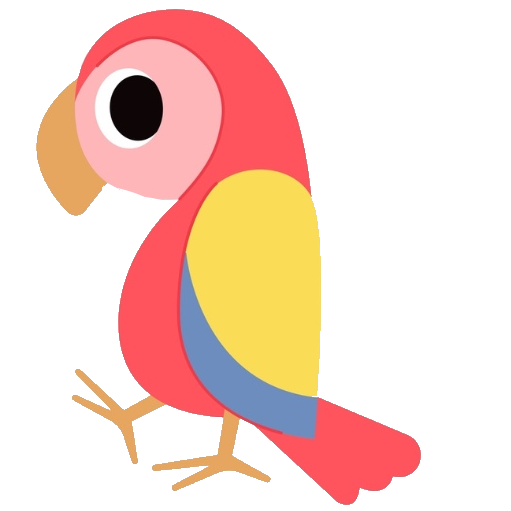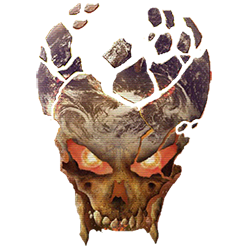Anyone here learned Tagalog as an adult? I’m an American so I only speak english and am trying to learn Tagalog. Anyone got tips on resources that worked well for them? Thanks.
Tagalog as in Filipino or Tagalog the provincial language? I’m guessing the latter, in which case I’m of no use since we’re Ilocanos, lol.
I’m curious as to your thoughts on the difference. I haven’t heard Tagalog called a provincial language before.
Not the guy you asked, but let me try to explain the difference as far as I understand it.
Filipino is the national language of the Philippines, based on the Tagalog language, with vocabulary from various different Philippine languages such as Cebuano, Bicol, Kapangpangan, Ilocano, among others. At least, that’s how it is defined. However, since Filipino is so heavily based on Tagalog, the two names are used interchangeably to refer to what many people see as the same language.
Now, I am supposing that ‘provincial language Tagalog’ refers to the various dialects of Tagalog spoken outside of (Metro) Manila such as Bulacan Tagalog, Batangas Tagalog, Quezon Tagalog, etc.
As far as I know, the standard being taught to non-native students of Tagalog is taken from the Manila dialect.
Hey I am a Aussie English and on-off again Tagalog learner. As an older learner I decided to use a multi source exposure approach which worked at first but then I think has now stalled because I haven’t been spending enough time recently. Recordings I spend 40 min commuting in my car each way to work so I listen to learn to speak Tagalog “tapes” now using YouTube like https://youtu.be/gMcxn_X9rLM for me this is better than channel surfing the local radio. I used to use podcasts but found it was easier to manage a personal YouTube Playlist. Radio At work as I need to be more focused on work, in the background I try to listen to Monster RX radio from Manila https://www.rx931.com/ they play international but also local pop music. The hosts talk in taglish and I find some of the adverts interesting. It’s funny that I hate local Australian radio hosts crapping on about their personal stories but don’t mind listening to the filipino hosts. You could try American based Filipino radio channels but I found local ones here were more heavy on the Tagalog compared to stations based in the Philippines. Phone Apps I was using the Drops app on my phone and probably should invest some of the time I am saving from Reddit to get back into it. TV I have used a few different ways over the years from a VPN to access TV5 live steam and catch up tv, to paying for the paytv channel https://www.abs-cbn.com, and trying to use “free” streaming sites. But now if I have time and attention I mostly use Netflix or prime and look for Tagalog audio movies. I do miss TV5s dubs of western movies and television shows, they really did an amazing job in finding voice actors and sound engineers to remix the audio. Funny watching movies like Sharknado, Ironman or SpongeBob, The Walking Dead in tagalog and sad you can’t access the audio on Netflix and others. Books There are heaps of books on Amazon for purchase but I found the text books at Libraries easy to access. Publisher Tuttle has a good range eg https://www.amazon.com/Basic-Tagalog-Filipino-National-Philippines/dp/0804851956/ref=mp_s_a_1_2?keywords=tagalog&qid=1688737046&s=books&sr=1-2 Lonely planet guide (I actually have 3 copies I found at secondhand book markets 😄 for Car, home, travel) https://www.amazon.com.au/Lonely-Filipino-Tagalog-Phrasebook-Dictionary/dp/1786570858/ref=asc_df_1786570858/?tag=googleshopmob-22&linkCode=df0&hvadid=517060549623&hvpos=&hvnetw=g&hvrand=18110863907909802096&hvpone=&hvptwo=&hvqmt=&hvdev=m&hvdvcmdl=&hvlocint=&hvlocphy=9071482&hvtargid=pla-995399647644&psc=1 https://adarna.com.ph/ makes great books, you may find a reseller in the states or ask someone traveling to the Philippines to grab a bundle of books. Conversations I have lucky to be able to ask some friends and family to explain meanings or pronunciations. I have considered a language coach/tutor but feel time poor to commit regular hours to it. Vocabulary and grammar is probably my greatest weakness through exposure you can pickup a lot of words. Learning key words can help you piece together a conversation you are listening to. But I struggle to reply quickly to join complex conversations past kumusta
**Also checkout ** https://ling-app.com/fil/books-to-learn-tagalog/ Sorry po to link to reddit… https://www.reddit.com/r/Tagalog/wiki/index https://www.tagalog.com/tools/
SUPER USEFUL! Thank you!
I’m an English speaking Australian learning Tagalog and - at least for me - I’ve found it difficult to locate many good resources that cover the spectrum of language learning.
A lot of the major apps don’t offer Tagalog/Filipino courses (I’m looking at you, DuoLingo and Babbel…) and the apps that do are often just for words or simple phrases, and don’t pay much attention to telling you how to string stuff together in a meaningful way, or even talk about how things like the prefixes, infixes, and suffixes work, which is kind of essential to know.
I’ve found the app called “Drops” to be pretty good for learning new words and after having tried a few other apps out I’d recommend it for that purpose.
There’s also tagalog.com which offers up a bunch of info and also a personal word learning system (I think it works as a sort of spaced repetition system style learning model).
I tried some high school workbooks which professed to “not be boring”, and unfortunately it was full of jargon-heavy language in English which was very dense and not particularly easy to understand. There are probably some good school textbooks and workbooks out there but I haven’t looked that hard on that front.
For the rest of it, I’ve resigned to bugging my Filipino partner when I have questions or woefully attempt to string a sentence together only for it to be entirely wrong.
If you don’t have a Filipino in your life to bother with questions, I’ve also heard a few people get on to a system called iTalki (I think this is how it’s written). From what I gather you can use it to link up to people who speak the language and learn through conversation. It’s sort of not really my vibe so I haven’t used it, but it sounds like it could be a good option if that’s your thing.
I also listen to a bunch of Filipino music on Spotify. It’s not necessarily the best for learning words, but I find that it helps assist my hearing to better pick out words, and gives an idea of pronunciation and the like. A few places to get started if you like the sound of this option are:
- Ben & Ben
- IV of Spades
- Juan Karlos
- NOBITA
- Moira Dela Torre
- Arthur Nery
- Unique Salonga
- The Itchyworms
- Johnoy Danao
Best of luck, and let me know if you find any good language learning tools for Filipino/Tagalog…!




